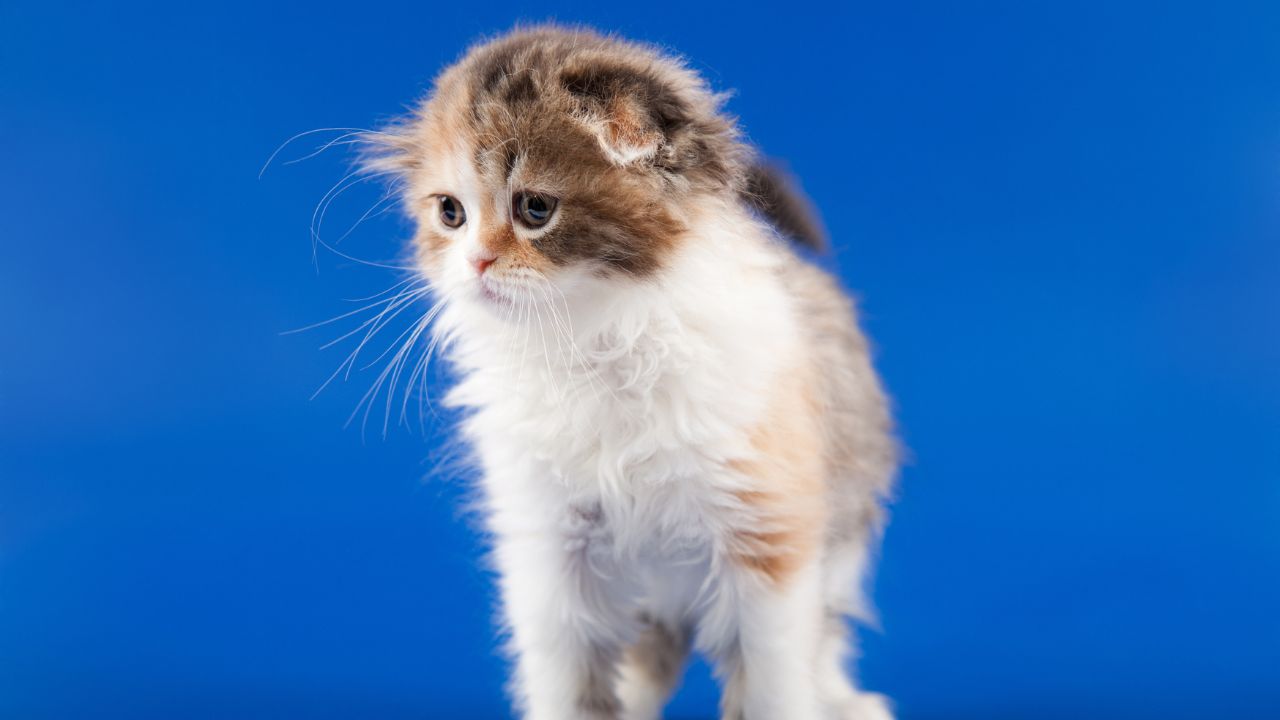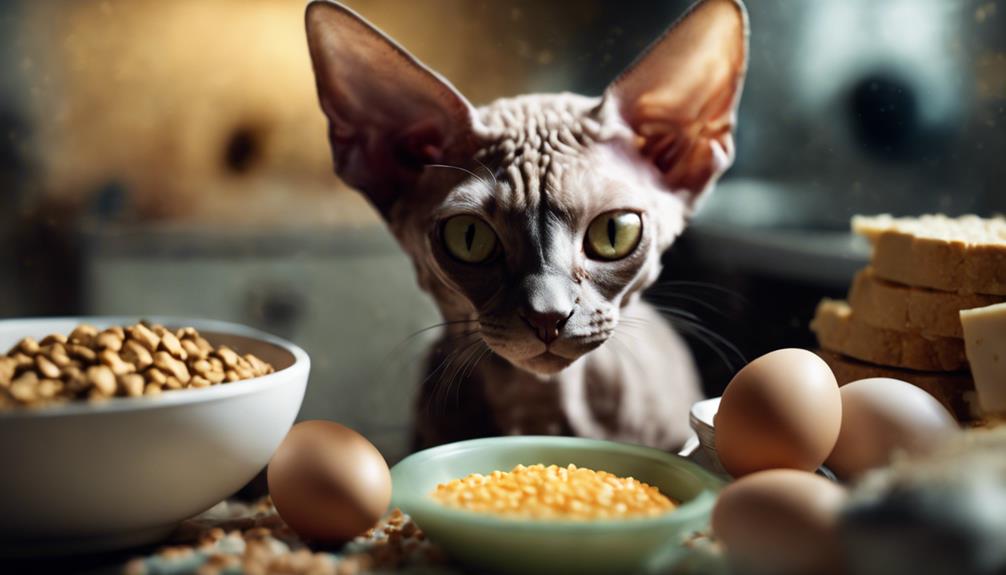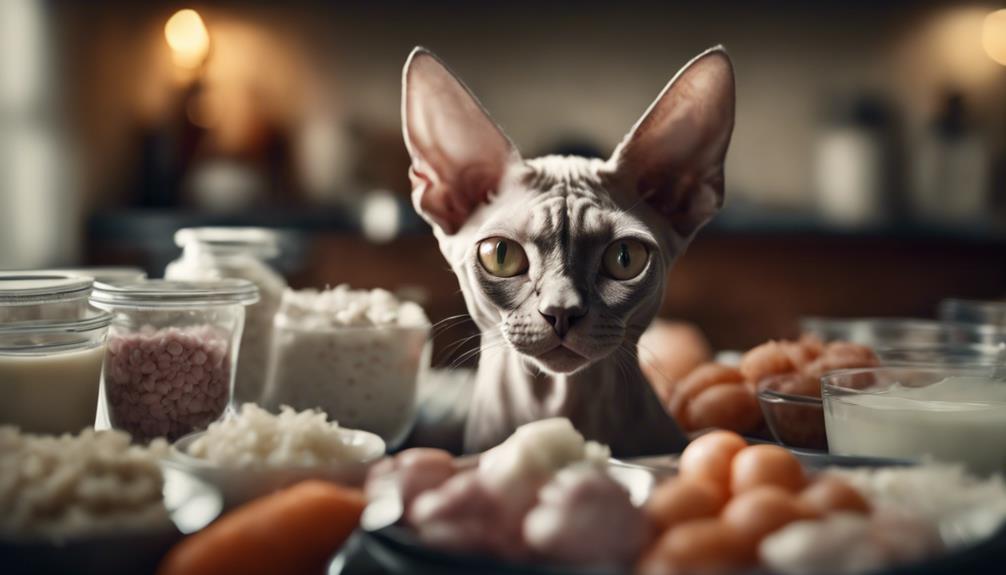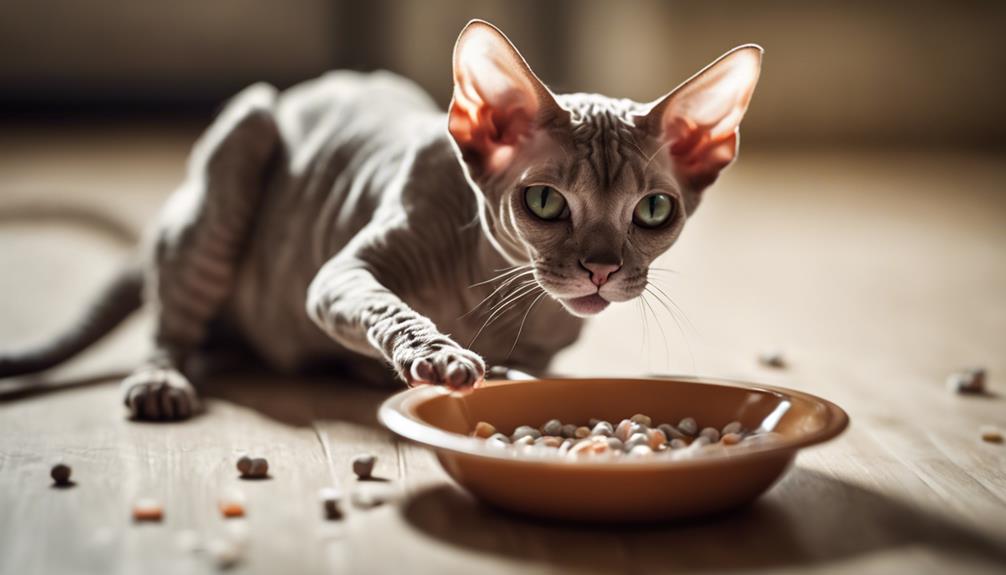Cats with folded ears are a unique and fascinating breed that have captured the hearts of many cat lovers around the world. One of the most popular breeds of cats with folded ears is the Scottish fold. However, many people wonder if all cats with folded ears are Scottish folds, and the answer is no. While Scottish folds are the most well-known cats with folded ears, they are not the only breed that possess this unique trait.
The folded ears of Scottish fold cats are the result of a genetic mutation that affects the cartilage in their ears. This mutation causes the ears to fold forward and downward, giving the cat a distinctive and adorable appearance.
However, not all cats with folded ears have this same mutation. There are other breeds of cats, such as the American Curl, that have a different genetic mutation that causes their ears to curl backward instead of folding forward. This difference in ear shape is just one example of how genetics can create unique and diverse cat breeds.
What are Scottish Folds?
Scottish Folds are a breed of domestic cats known for their unique appearance, specifically their folded ears. They are medium-sized cats with a round face, round eyes, and a muscular body. Scottish Folds are sweet-tempered, affectionate, and playful cats that make great companions. In this section, we will discuss the origins and history of Scottish Folds, their appearance and personality, as well as potential health issues and concerns associated with the breed.
Origins and History
The Scottish Fold breed originated in Scotland in the 1960s when a British Shorthair cat gave birth to a kitten with folded ears. This genetic mutation was then selectively bred to create the Scottish Fold breed. The breed was initially known as “lop-eared” cats, but the name was later changed to Scottish Folds in honor of their country of origin.
In the early days of the breed, Scottish Folds were crossbred with American Shorthairs and Scottish Shorthairs to improve their genetic diversity.
However, this practice was later discontinued due to concerns about genetic health problems. Today, Scottish Folds are bred only with other Scottish Folds to maintain the breed’s genetic integrity.
Appearance and Personality
Scottish Folds have a distinct appearance that sets them apart from other breeds. Their most notable feature is their folded ears, which give them an owl-like appearance. Scottish Folds can have single, double, or triple folds, with the tightest folds being the most desirable for show cats. They have short, dense fur that comes in a variety of colors and patterns.
In terms of personality, Scottish Folds are known for being affectionate, loyal, and playful. They are social cats that enjoy the company of their owners and other pets. Scottish Folds are also intelligent and curious, which can sometimes get them into trouble. They are not particularly vocal cats but will communicate with their owners through chirps and trills.
Health Issues and Concerns
Like all breeds, Scottish Folds are prone to certain health issues. One of the most common health problems in Scottish Folds is polycystic kidney disease, an inherited condition that can cause kidney failure. Scottish Folds are also at an increased risk of developing periodontal disease due to their unique jaw structure.
There have been ethical concerns raised about the breeding of Scottish Folds due to their genetic health problems. Some organizations, such as the Cat Fanciers’ Association (CFA), the International Cat Association (TICA), and the Governing Council of the Cat Fancy (GCCF), have placed restrictions on the breeding of Scottish Folds to prevent the spread of genetic health problems.
In conclusion, Scottish Folds are a unique and beloved breed of cat with a fascinating history. While they are prone to certain health issues, they make wonderful pets for those who are willing to provide them with proper hygiene, cleaning, and veterinary care.
Folded Ears: The Mutation Behind Scottish Folds
Scottish Folds are a unique breed of cats known for their distinctive folded ears. However, not all cats with folded ears are Scottish Folds. In this section, we will explore the mutation behind Scottish Folds and the different types of folded ears seen in cats.
Understanding the Mutation
The folded ears of Scottish Folds are due to a spontaneous mutation in a gene that affects cartilage throughout the body. This mutation causes the ears to fold forward and down towards the front of the head, giving the cat its characteristic “owl-like” appearance. This mutation is an incompletely dominant gene, meaning that cats with one copy of the gene will have folded ears, while cats with two copies of the gene may have more severe health issues.
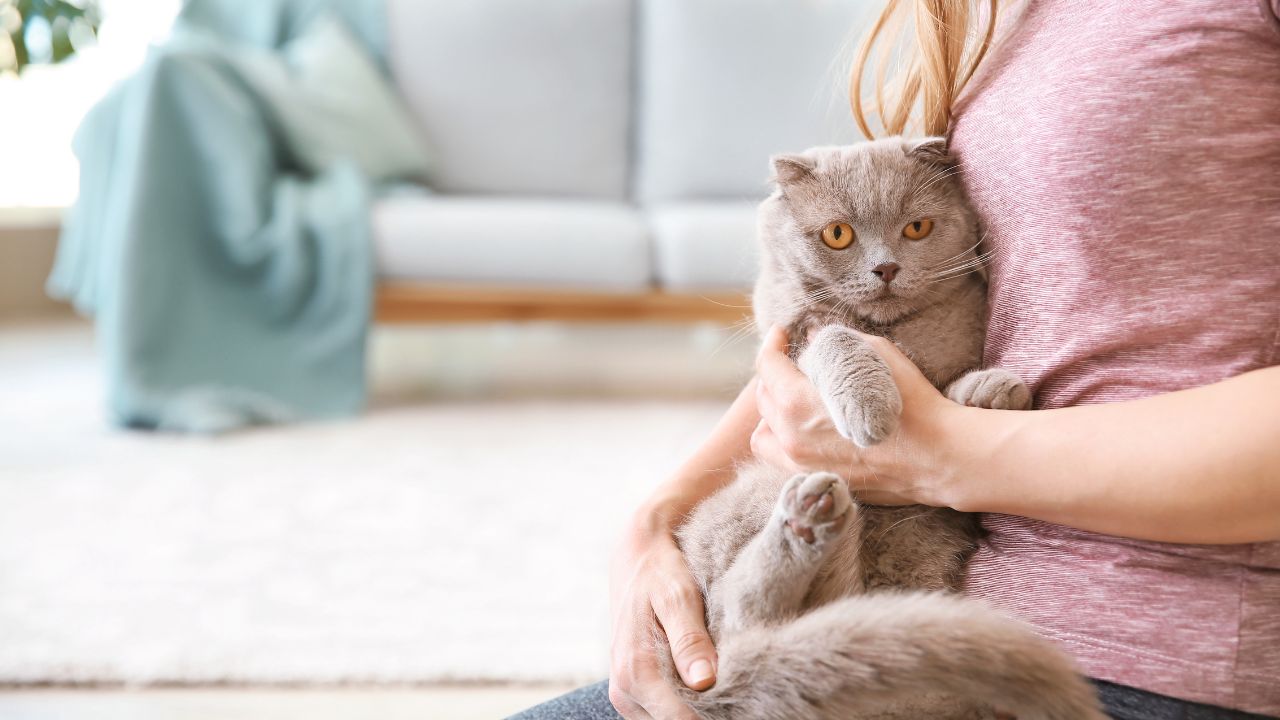
Types of Folded Ears
While Scottish Folds are the most well-known breed with folded ears, there are other breeds and individual cats with similar ear folds. These cats can have a single fold, double fold, or triple fold in their ears. The number of folds in the ear does not necessarily indicate the breed of the cat.
Genetics of Folded Ears
The gene responsible for folded ears in cats is known as the Fd gene. It is a dominant gene, meaning that cats with one copy of the gene will have folded ears. However, cats with two copies of the gene may have more severe health issues, such as degenerative issues in their cartilage and bone. These cats are homozygous for the Fd gene.
Cats with one copy of the Fd gene are heterozygous for the gene and may pass it on to their offspring. Breeding two cats with the Fd gene increases the likelihood of producing cats with two copies of the gene, which can lead to health issues.
In conclusion, not all cats with folded ears are Scottish Folds, and the mutation behind folded ears is due to a spontaneous mutation in a gene that affects cartilage throughout the body. It is important to understand the genetics behind folded ears to prevent health issues in cats.
Are All Cats with Folded Ears Scottish Folds?
Folded ears are a unique and adorable feature that some cat breeds possess. However, not all cats with folded ears are Scottish Folds. While Scottish Folds are the most well-known breed with this characteristic, there are a few other breeds that also have folded ears.
Other Breeds with Folded Ears
One example of a breed with folded ears is the American Curl. Unlike Scottish Folds, American Curls have ears that curl backward, rather than fold forward. Another breed with folded ears is the Highland Fold, which is a cross between a Scottish Fold and a British Shorthair. Additionally, the Ukrainian Levkoy and the British Shorthair are two other breeds that can occasionally have folded ears.
Distinguishing Scottish Folds from Other Breeds
While other breeds may have folded ears, Scottish Folds are easily distinguishable by their round faces and stocky bodies. They also tend to have large, round eyes that give them a cute and curious expression. Scottish Folds are also the only breed with a triple-fold ear that is considered show quality.
It’s important to note that not all cats with folded ears are purebred, and some may have mixed ancestry. Additionally, not all cats with folded ears are healthy. Scottish Folds, in particular, are prone to a genetic condition called osteochondrodysplasia, which affects their cartilage and can cause health problems.
In conclusion, while Scottish Folds are the most well-known breed with folded ears, there are a few other breeds that also have this characteristic. However, Scottish Folds are easily distinguishable from other breeds by their unique physical features. It’s important to research and understand the breed characteristics and potential health issues before adopting any cat, regardless of their ear shape.
Caring for Scottish Folds
Scottish Folds are sweet-tempered, short-haired cats with a unique trait – folded ears. These cats require some additional care, especially in their ears, to ensure their health and comfort. In this section, we will discuss how to care for Scottish Folds in terms of grooming and hygiene, feeding and exercise, and healthcare and preventive measures.
Grooming and Hygiene
Due to their folded ears, Scottish Folds require regular ear cleaning. Weekly ear cleaning with a veterinarian recommended ear cleaner or a 50/50 mixture of water and cider vinegar can help prevent infections, mites, and discomfort. Additionally, dental hygiene is essential for Scottish Folds. Brushing their teeth regularly can help prevent periodontal disease and other dental health problems.
Scottish Folds also need regular grooming to keep their coat healthy and shiny. Brushing their coat once a week can help remove loose hair and prevent hairballs. Providing a cat tree or scratching furniture can also help keep their claws healthy and prevent them from scratching your furniture.
Feeding and Exercise
Scottish Folds have a rounded, sturdy body, and they require a balanced diet to maintain their health. Feeding them high-quality cat food that is rich in protein and other essential nutrients is essential. Additionally, providing them with enough exercise is crucial to keep them healthy. Engaging them in playing with cat toys, providing scratching posts, and allowing them to climb and jump can help keep them active and healthy.
Healthcare and Preventive Measures
Scottish Folds are prone to genetic health problems such as PKD, a kidney disease that can be passed down from their parents. Regular check-ups with a veterinarian can help detect and prevent such health problems. Additionally, maintaining their hygiene and cleaning their ears regularly can help prevent ear infections and other health problems.
In conclusion, caring for Scottish Folds requires regular grooming and hygiene, a balanced diet, enough exercise, and regular check-ups with a veterinarian. By following these preventive measures, you can ensure that your Scottish Fold remains healthy and happy.
Conclusion
In conclusion, not all cats with folded ears are Scottish Folds. While Scottish Folds are known for their trademark folded ears, other cat breeds, such as the American Curl and the British Shorthair, can also have folded ears. Additionally, some cats may have naturally folded ears without being a specific breed.
Scottish Folds are known for their sweet personalities and playful, adaptable nature. They have a moderate energy level and are intelligent cats that enjoy human interaction. However, due to their demand and fascinating genetic traits, it is important to ensure that they are bred responsibly to avoid health issues such as osteochondrodysplasia.
While Scottish Folds have gained popularity in recent years, it is important to note that not all cats with folded ears have the same cute appearance as Scottish Folds. Some cats with folded ears may have round faces and big, round eyes, while others may have more quiet and reserved personalities.
Overall, while Scottish Folds are a unique and fascinating breed, it is important to remember that they are not the only cats with folded ears. Whether you prefer a cat with folded ears or not, it is important to choose a cat that fits your lifestyle and personality, regardless of their ear shape.

